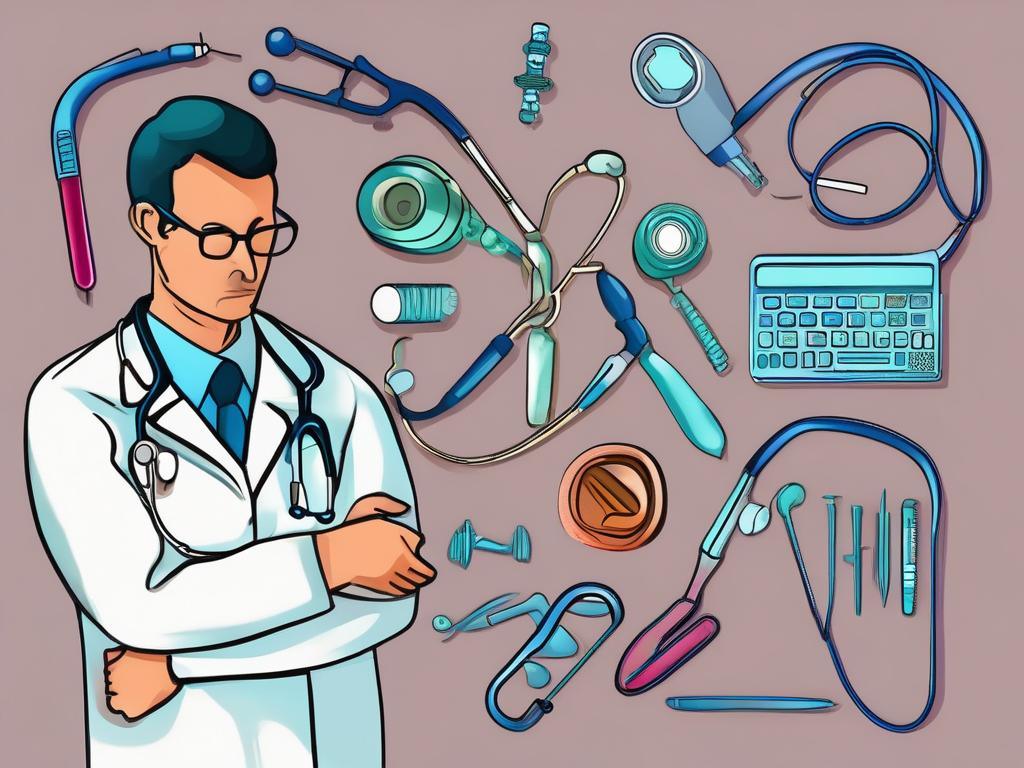Do Doctors Have to Pay for Their Own Medical Devices?
Medical professionals dedicate years to mastering their craft, but one question often lingers: Do doctors have to pay for their own medical devices? The answer isn’t straightforward—it depends on practice settings, specialties, and financial arrangements. Understanding these dynamics can help physicians optimize their earnings while delivering top-tier patient care. In this guide, we’ll break down who covers the costs, how to minimize expenses, and why smart investments in medical tools can lead to long-term wealth.
Who Pays for Medical Devices: Doctors or Employers?
The financial responsibility for medical devices varies based on employment models. Here’s how it typically works:
1. Employed Physicians
Doctors working for hospitals or healthcare systems usually have their equipment provided by the employer. Key points:
- Hospitals cover costs: Large institutions often supply devices like stethoscopes, otoscopes, and diagnostic tools.
- Exceptions may apply: Some employers require physicians to purchase specialized equipment.
- Tax benefits: Even if devices are provided, doctors can sometimes deduct unreimbursed expenses.
2. Private Practice Doctors
Independent practitioners typically bear the full cost of their tools. This includes:
- Diagnostic equipment (e.g., EKG machines, ultrasound devices)
- Surgical instruments (e.g., laparoscopic tools)
- Office supplies (e.g., examination tables, sterilizers)
However, these expenses can be offset through strategic purchasing and tax planning.
3. Contractors and Locum Tenens
Freelance physicians often need to supply their own basic tools, though high-cost devices may be provided by staffing agencies.
How Much Do Medical Devices Cost Doctors?
Investing in quality equipment is non-negotiable for patient care—but costs add up. Below is a breakdown of common expenses:
| Device | Average Cost | Lifespan |
|---|---|---|
| Stethoscope | $50 – $500 | 5-10 years |
| Otoscope/Ophthalmoscope Set | $200 – $1,500 | 7-10 years |
| Portable Ultrasound | $2,000 – $50,000 | 5-8 years |
| Surgical Instrument Set | $1,000 – $30,000 | 10-15 years |
Ways to Reduce Costs
- Bulk purchasing: Buying in volume can secure discounts.
- Leasing options: Some practices lease high-ticket items.
- Tax deductions: Section 179 allows immediate expensing of equipment.
Financial Strategies for Doctors Buying Medical Devices
Smart financial planning can turn equipment costs into wealth-building opportunities. Here’s how:
1. Leverage Business Structures
Forming an LLC or S-Corp can provide tax advantages when purchasing devices.
2. Explore Financing Options
Many vendors offer low-interest financing, preserving cash flow.
3. Buy Refurbished or Pre-Owned
Certified pre-owned devices from reputable suppliers like Dune Medical Devices Inc can save thousands.
Why Investing in Quality Medical Devices Pays Off
While upfront costs may seem steep, premium equipment delivers:
- Higher patient satisfaction → More referrals
- Improved diagnostic accuracy → Better outcomes
- Longer lifespan → Lower replacement costs
Conclusion: Turn Equipment Costs Into Profit Centers
Whether you’re an employed physician or practice owner, understanding who pays for medical devices—and how to optimize those expenses—is crucial for financial success. By implementing smart purchasing strategies and leveraging tax benefits, doctors can transform equipment costs into investments that grow their wealth.
Ready to equip your practice profitably? Visit our shop for premium devices that balance quality and value.
FAQ Section
Do hospital-employed doctors need to buy their own stethoscopes?
Most hospitals provide basic equipment like stethoscopes, though some physicians prefer purchasing premium models for personal use.
Can doctors deduct medical device purchases on taxes?
Yes, if you’re self-employed or have unreimbursed employee expenses (subject to IRS limitations). Section 179 deductions are particularly valuable.
What’s the most cost-effective way for new doctors to acquire equipment?
Start with essential items, consider refurbished devices, and explore vendor financing. Contact us for personalized recommendations.
Do surgeons typically own their surgical instruments?
In private practice, yes. Hospital-based surgeons often use institutional tools, though some prefer personal specialty instruments.
How can I verify the quality of medical devices before purchasing?
Look for FDA clearance, manufacturer warranties, and supplier reputation. Dune Medical Devices offers certified pre-owned equipment with performance guarantees.
Have more questions? Our experts are ready to help you make financially savvy equipment decisions. Reach out today to start optimizing your practice’s profitability.

